Fam!
This week we celebrated the first year of our StoryWorlds substack. Hard to wrap my head around it — not only how fast the time passed but also who the hell wrote all those weird-ass posts. I still remember when Sophia E. approached me with the idea of joining substack, how patient she was while I mulled it over for nearly a year. In the end I’m glad I listened to her.
Anyway: Ohtani had a game for the history books and the school year has started and my friends’ kids are neck-deep in college applications and I’m re-reading some Murakami and trying not to let the latest vile derangements from our politicians and their systems dismay me right into hermit-dom.
Also: last night someone asked me to show them photographs of my oldest sister and I was stunned to discover that I only have three pics of her on my phone and all from when we were kids. I assumed I had dozens and dozens probably because she’s always on my mind and my heart.
She was the only member of my immediate family to ever come to any of my readings.
Anyway…
As always: Endless gratitude to all our subscribers. I say this all the time but your insights and interventions and support have made StoryWorlds into something hopeful — for me and hopefully for you too.
And finally…
TIME FOR ANOTHER OFFICE HOUR!
If you have any questions at all regarding building stories or the creative life in general — if you have any questions about anything we’ve been discussing — please post them in the comments section below or message me directly.
And now on to what’s nourished this last month.
READ
Let’s start with one of the toughest and bravest books I’ve read in a long time, from a writer whose courage and talents are a gift for us all. I read BEST COPY AVAILABLE earlier this year in galley and have been waiting for it to be released so that I could recommend it to everyone, and here it is.
This is a tough tough book but the light that it yields is without measure.
To quote Poets and Writers: “In honest, unsparing prose, Nicorvo tells the story of how the love of a single mother helped end a cycle of abuse and abandonment. Geoff Dyer selected Best Copy Available as the winner of the Sue William Silverman Prize for Creative Nonfiction. Junot Díaz calls the book “a compulsive descent into darkness” and “a fearless portrait of the invincibility of our fragile hearts.” Jay Baron Nicorvo is the author of the poetry collection Deadbeat (Four Way Books, 2012), and a novel, The Standard Grand (St. Martin’s Press, 2017). Nicorvo has taught at Eckerd College, Emerson College, and Western Michigan University. He was mostly recently a guest artist at the Cornell College’s low-residency program in creative writing.”
What I said earlier:
"A compulsive descent into darkness, a fearless portrait of the invincibility of our fragile hearts. Nicorvo leaves it all on the page…a bravura performance.
Find more on BEST AVAILABLE COPY here: https://ugapress.org/book/9780820367361/best-copy-available/
and here: https://www.pw.org/content/ten_questions_for_jay_baron_nicorvo
We’re in the midst of a full-out dehumanizing assault on the Haitian diasporic community in the US. Sophie Maríñez’s astonishing scholarship could not have arrived at a better time.
Professor Samuel Martinez succinctly captures the importance of the work: "Students of Haitian-Dominican relations will be thrilled by the ease with which Sophie Maríñez crosses languages and borders, and moves among media and genres, to bundle topics and sources as diverse as the musical, lyrical, and style innovations of Dominican rock pioneer, Luis (‘Terror’) Días, the aesthetics and philosophy of Haitian Spiralist authors René Philoctète and Frankétienne, diverse historiographic and literary figurations of the martyred Taíno cacica, Anacaona, and border-crossing folklore and vodou symbolism. A heady and richly detailed portrait of an island crisscrossed with intense human and cultural exchanges, Spirals in the Caribbean will trigger fruitful conversations among feminist, decolonial, and anti-racist scholars in a range of humanities fields."
https://www.pennpress.org/9781512826418/spirals-in-the-caribbean/
Hilary Mantel is justly lauded for her Cromwell trilogy — Wolf Hall, Bring Up the Bodies and The Mirror & The Light — but her novel of the French Revolution, A Place of Greater Safety, is another epic stunner. Mantel summons a whole universe and lays out in fiery detail how revolution is made and how quickly it devours its makers. I won’t lie; I would have preferred a little more Haiti, but of course my Caribbean self would want that.
https://us.macmillan.com/books/9780312426392/aplaceofgreatersafety
WATCH
If you’re in Tokyo between now and November 11, Keiichi Tanaami’s retrospective at the National Art Center is the one to see. Closest I’ve come to exaltation since I saw Robert Glasper live. Your mind and eye and soul won’t be the same. Trust me.
“The Japanese artist Keiichi Tanaami has recently been enjoying a surge in positive critical reappraisal. He began his career as a designer while enrolled at Musashino Art University, and in 1975 he became the first art director of the monthly magazine PLAYBOY (Japanese edition). Tanaami became a leading figure in Japan’s underground art scene primarily on the strength of his work in magazines and advertisements. From the 1960s until today, he has prolifically produced paintings, collages, sculptures, animations, experimental video pieces, and installations, applying methodologies and techniques he developed in the design field. Defying confinement to specific genres or conventional rules, he has had a significant impact in an art-historical context. This exhibition is the first major retrospective covering Tanaami’s creative journey of more than 60 years, including the debut of his latest works, highlighting his status as a role model for contemporary artists.”
https://www.nact.jp/english/exhibition_special/2024/keiichitanaami/index.html
It’s easy to visit Japan and only focus on the weeb delights but don’t be confused: there’s plenty of inequality and social cruelty in Japan. Jérôme Plan’s LOST IN MANBOO is a heartbreaker portrait of the easy-to-miss margins. (In the same vein is Jake Clennell’s award-winning documentary The Great Happiness Space: Tale of an Osaka Love Thief. )
More information here: https://www.99.media/en/lost-in-manboo-my-life-in-a-japanese-cyber-cafe/
PLAY
Some more of the ever-brilliant Robert Glasper that my girl Downtown K. B. hipped me to. She also sent Fousheé my way. Dios mio what a voice.
And look who just dropped another gem — Tobe Nwigwe! I’ve been down with this celestial brother since my boy Fanon put me on.
FEAST
If you’re in the Boston-area and you have the time and the means I cannot recommend enough a jaunt up to Portland, Maine (and its surrounds). Plenty of lists telling you where to go and what to eat and I’ll have to gin up my own soon, but in anticipation here’s a spot that should not be missed: LyAnna Sanabria and Joshua Miranda’s “elevated Puerto Rican bar” PAPI. PAPI is un palo and a half and the one of best things to happen to New England in a minute. If you’re just feeling peckish, go for the empanadas but if you’re up for the plato fuertes their pernil ain’t taking no prisoners.
And a small blurb: https://www.cntraveler.com/restaurants/portland/papi
Check out Sanabria’s coquito recipe here

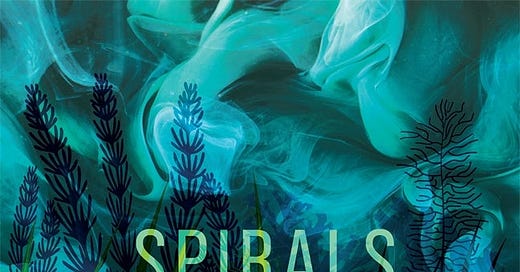




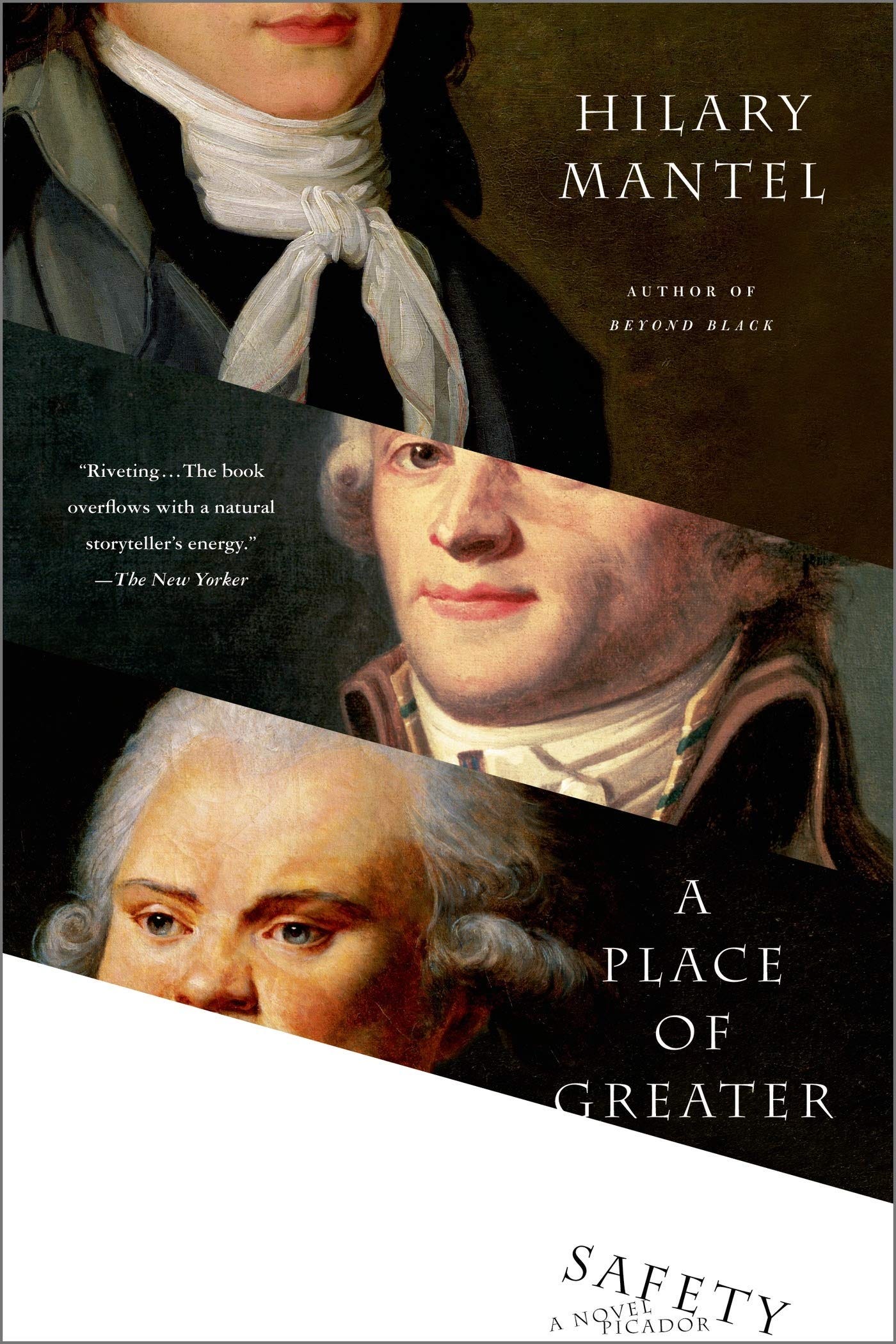
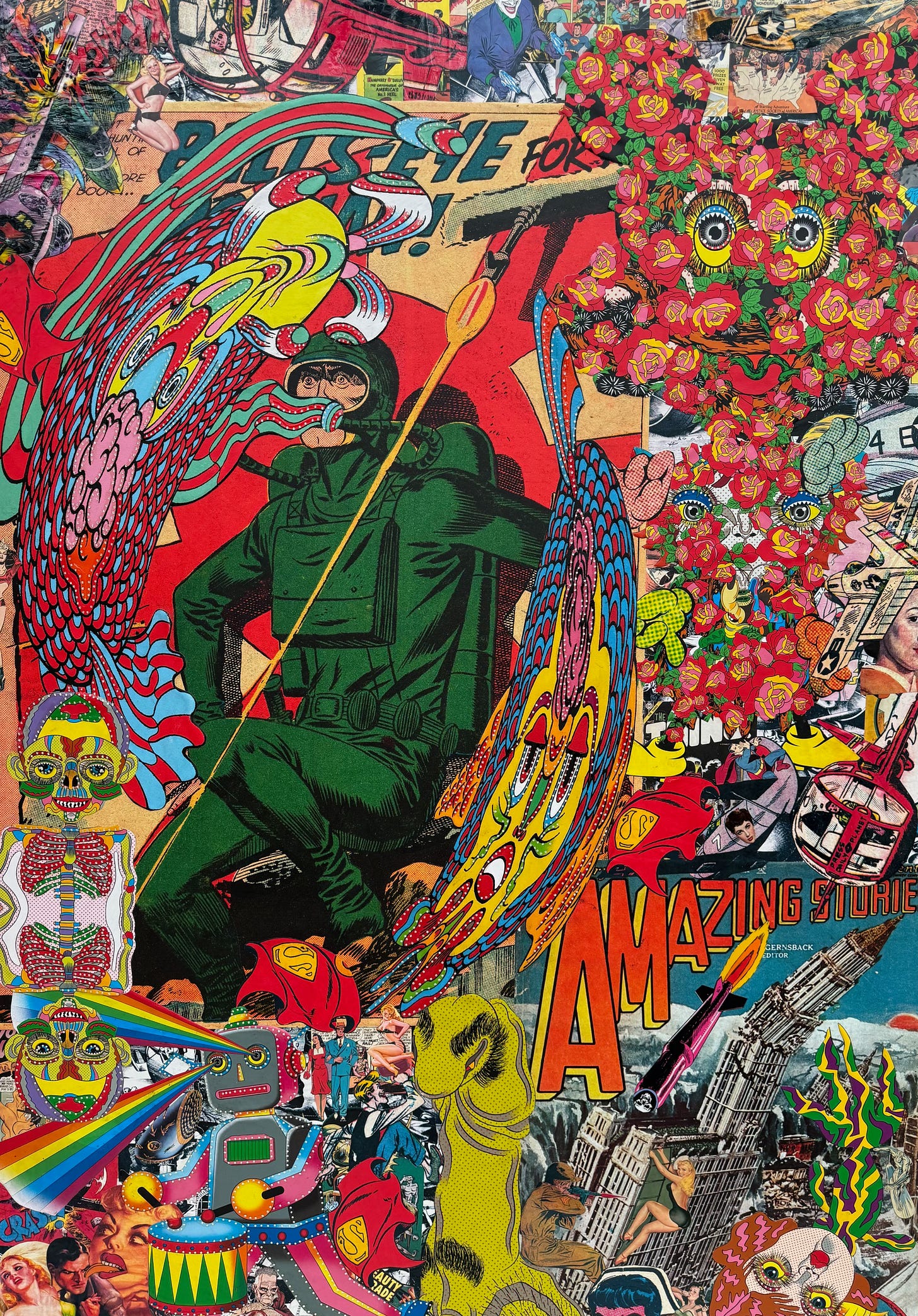

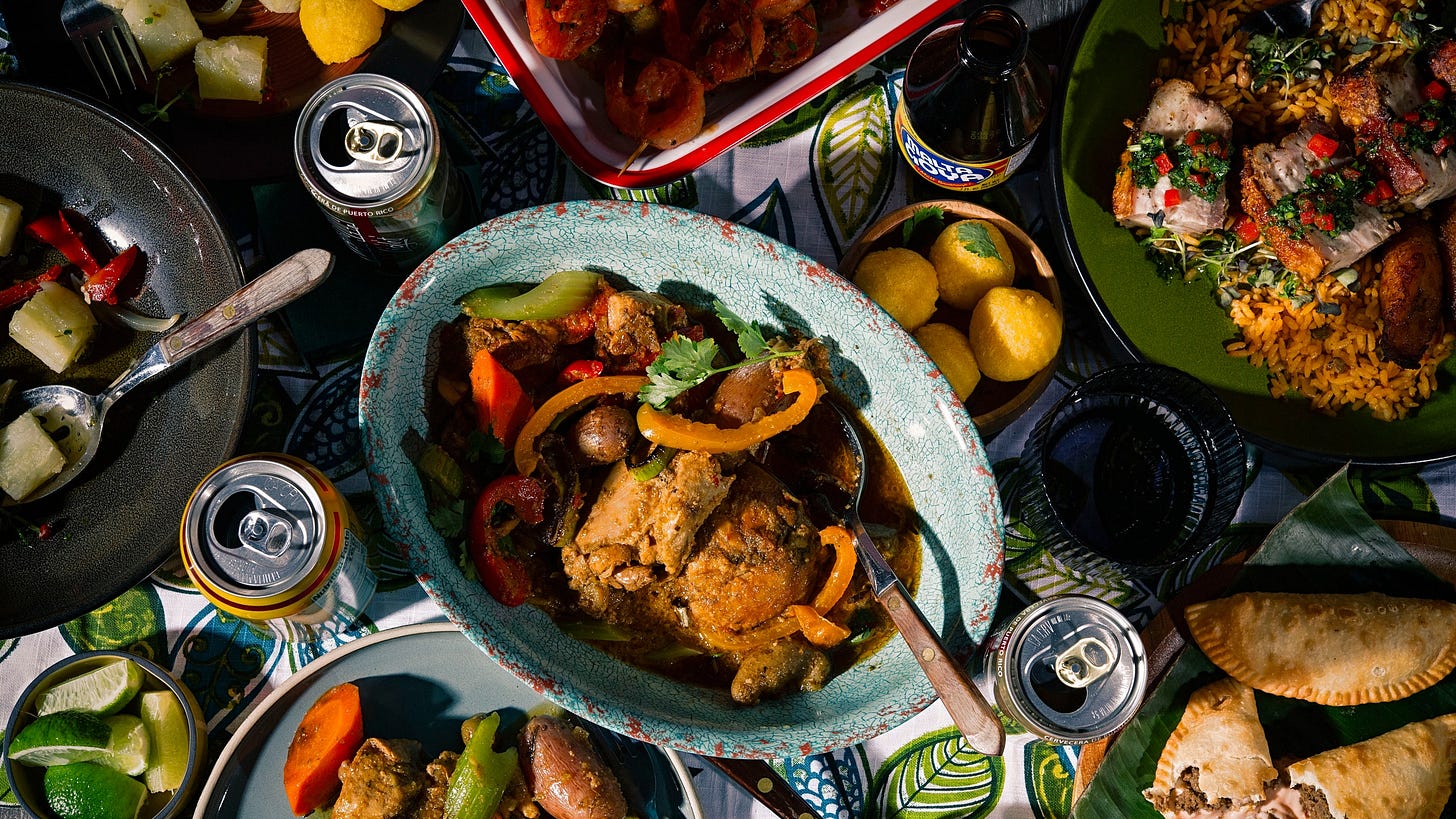
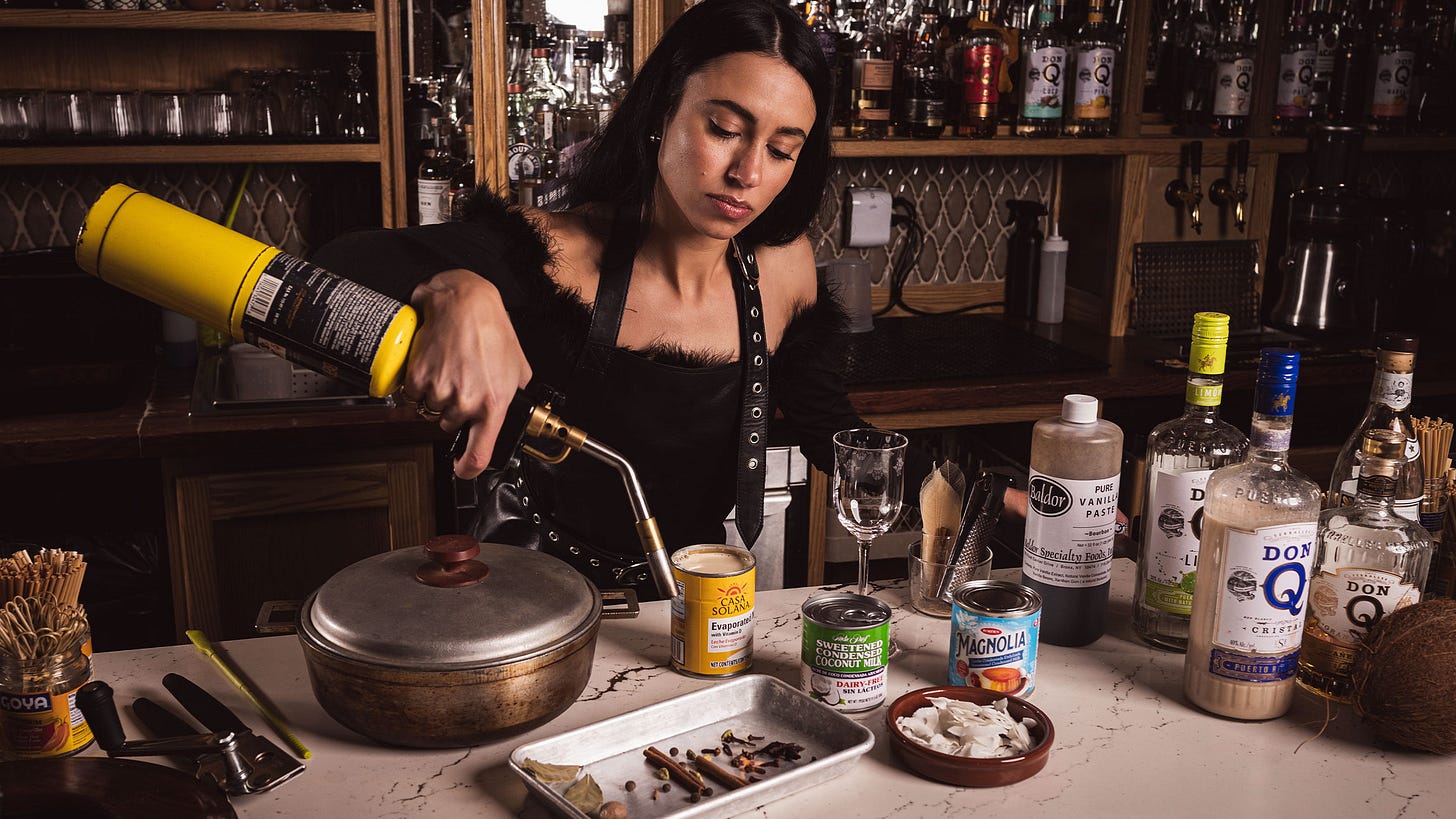
How do you go about feeling out the voice of a new piece of fiction? In fact, how do you think about/define/talk about voice in general?
After recommending Oscar Wao my sister has recently and quickly finished your works. She’s thirsting for more novels that tap into Dominican culture in a way that speaks to our experience. Looking forward to checking out the two works in this post, but I’ve got to ask: any other novels come to mind that might scratch that never-ending itch?